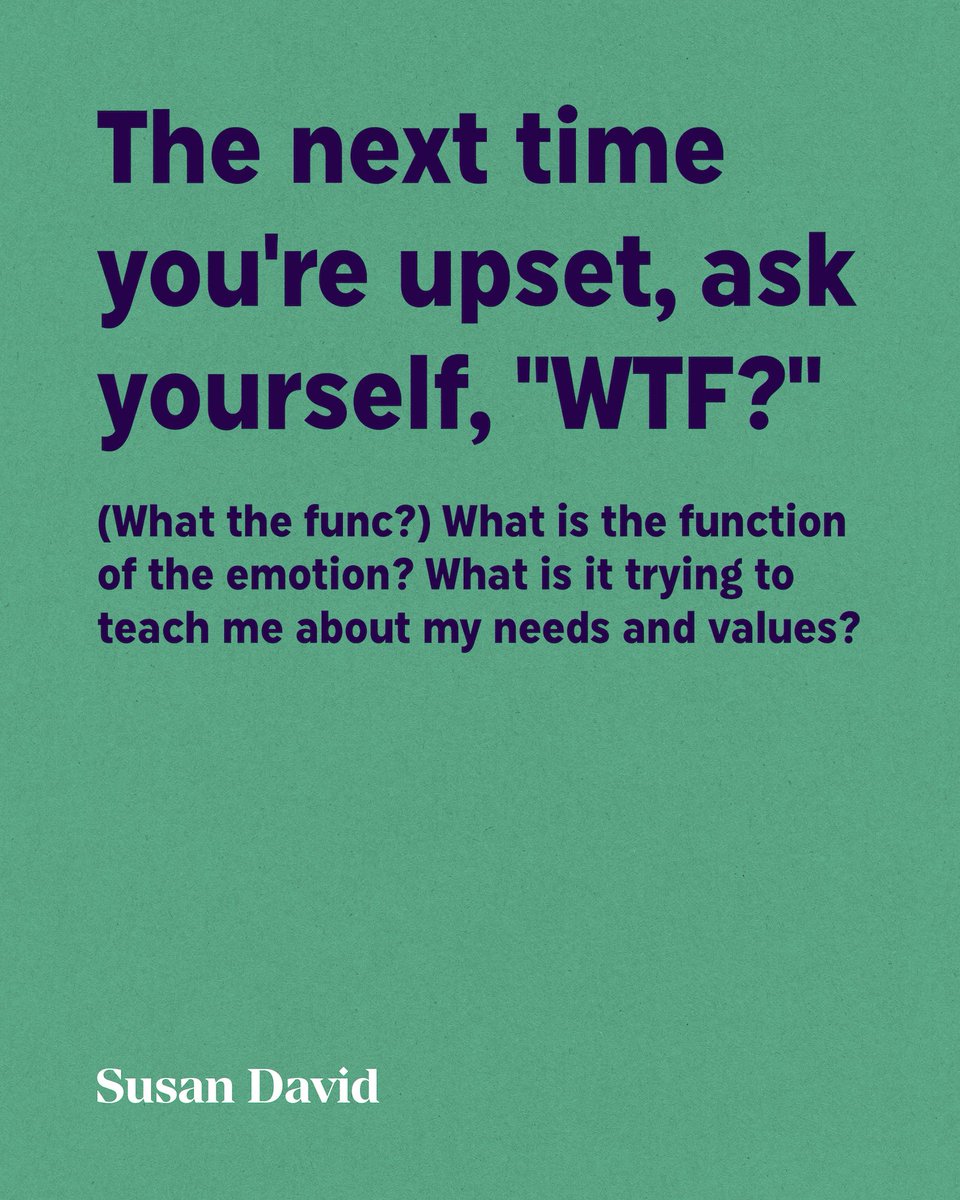
Susan David, Ph.D.
@susandavid_phd
Psychologist, Harvard Medical School. TED Speaker. Author of the #1 WSJ bestseller Emotional Agility. Take my free quiz: bit.ly/3rlr6CP
ID: 228628039
http://www.susandavid.com 20-12-2010 07:27:21
13,13K Tweet
63,63K Followers
4,4K Following







































